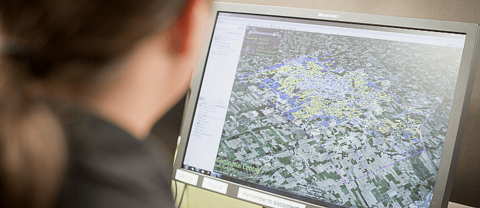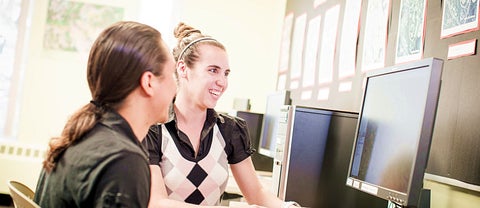


Welcome to the Geospatial Centre
The Geospatial Centre provides cartographic and Geographic Information System (GIS) services to the University of Waterloo community. Services include reference, workshops, and access to GIS and remote sensing data.
Current students, faculty, and staff have full access to digital and printed maps, GIS technology, aerial photographs, and more.
The Geospatial Centre is located in the Dana Porter Library, third floor, room 328. An appointment is required to access the Centre.